|
We were honored to have Haldre Rogers join the lab during her visit this week. We are huge fans of Haldre -- not only did she give a phenomenal EEOB departmental seminar, but she hung out for a few days to work with us and connect with students. Each year that I teach my 'Conservation genomics' course, we partner with external collaborators to address a real-world conservation problem through our semester-long research projects. This year, one group has entered a collaboration with Haldre and her network of collaborators to better understand the ecology of bird loss in the Northern Mariana Islands. By the end of the year, we plan to report back on the diets of remnant bird populations using dietary DNA metabarcoding methods. We just finished PCR week, and Haldre joined us to do some pipetting!
0 Comments
We were lucky to get to work with Hannah over the summer at Yellowstone, but now with the start of a new semester it's official... Welcome to the lab, Hannah!
Hannah arrives in the lab to start her Ph.D. work as a plant community ecologist with interests in understanding how the activities of large mammals at Yellowstone influence the long-term composition of plant communities. Hannah plans to connect field observations with manipulative experiments and DNA barcoding to understand the complex food web of this incredible system. Hannah will be working closely with the National Parks Service in the field. Here at Brown, she will be engaged with EEOB, IBES, and DSI via her participation in an NIH T32 grant that focuses on scientific communication. We feel so lucky to have Hannah join us and so excited to see how the amazing work she is doing will pay off! A great way to end the summer of 2022 -- major success for two postdocs in the lab!
Colin Donihue, Voss Postdoc in IBES, accepted a full-time position as a Data Analyst at the Brown Division of Campus Life. We are so happy to know that we will get to keep seeing Colin around campus! Colin has been an amazing collaborator, lab mate, and mentor to a number of undergraduates who are completing theses and coauthoring papers. Students at Brown are lucky that he will now be applying his research creativity and skillsets toward a data-driven opportunity to improve quality of life on campus! Woohoo! Ezequiel Vanderhoeven, CONICET International Postdoc in EEOB, was awarded an Organization for Tropical Studies Early Career Fellowship! This award is an honor and a unique opportunity to join a storied community of field ecologists. Eze's project is titled "Health and nutrition of anteaters, armadillos, and sloths (Order Xenarthra)" and it will be carried out at La Selva Research Station. Fantastic opportunities lie ahead for Eze -- well deserved! Collaborator and University of Wyoming PhD student, Leo Malingati, appears on an episode of the documentary series Wildlife Warriors and shares his experience studying the small mammals of Mpala Research Centre!
The conversation featuring our work to analyze small mammal diets -- poop science! Short video available on YouTube. Episode on Vimeo. It feels good to have more of the lab getting back into the swing of fieldwork after the worst years of the early pandemic!
The lab has always maintained some field activity throughout the pandemic. Ezequiel has been remote from field sites across Argentina, Robert and Peter have been keeping active at Mpala in Kenya, and Colin (and the lizard team) as well as Amanda (and the terrapin team) had managed to keep active around the northeastern US. But a lot of us had to cut back or go it alone more than we would have liked. The tide is turning, though! This summer we have had a group led by Beth (postdoc), Hannah (incoming grad student), and Maddy (UTRA student) at Yellowstone -- collecting dung, surveying plants, coordinating with collaborators -- with support from our scientific partners at the National Park Service and the Brown University Herbarium. Amidst the ongoing recovery from disastrous flooding along the Yellowstone River, we were able to get out into the field together to advance a number of priority projects for the lab. We are super grateful to funders: NSF (CAREER & EPSCoR award), Department of Interior (Cooperative Agreement), Brown University (UTRA & IBES). The quintessential group photo of the team:
The lab is hiring a new research assistant! This is a unique opportunity to join a talented, friendly, and collaborative group of researchers who are making a difference in molecular ecology. The position is perfect for a college graduate seeking lab experience and publication opportunities before graduate school. A brief description is below. If you are interested, apply soon! The lab of Dr. Tyler Kartzinel at Brown University (www.kartzinellab.com) is seeking a Research Assistant to support research on the diets, microbiomes, and metagenomes of wildlife. The Research Assistant will devote ~80% of their time to specific research projects and the remaining ~20% time to general maintenance and lab support. The Research Assistant will be welcomed as a full lab member and be expected to attend lab meetings and to contribute to a supportive and interactive lab atmosphere. The Research Assistant will interface with varied research facilities including the Brown University Genomics Facility, Brown University Herbarium, Brown Center for Animal Resources and Education and diverse collaborators on our NSF-funded projects around the world. This is a unique opportunity to become deeply involved in exciting research at the interface of ecology, genetics, and conservation. As such, it is well-suited for a college graduate seeking additional experience before graduate school. The individual who fills the position will have opportunities to collaborate on important partnerships around the world. Please see our Research Page for examples of funded projects that are relevant to the position. Please see our People Page to get a sense for the diversity of collaborative efforts happening in the lab.
Find full details in the the official job description Brown's Career Site (REQ177255). I plan to review applications on a rolling basis and hope to fill the position in summer of 2022. I will continue reviewing applications until the position is filled. Please email the PI with any inquiries about the position.
Congratulations to Elin Videvall on her talk at the Revolution 2022 conference in Uppsala. Elin's presentation focused on interesting results from analyses of giraffe diets and microbiomes across Kenya. It was voted the *BEST TALK* of the entire conference!! What an amazing researcher and science communicator -- we are so fortunate to have Elin in the lab :)
Congratulations to Beth on publishing an important Open Access review in Molecular Ecology!
The precautionary principle and dietary DNA metabarcoding: commonly used abundance thresholds change ecological interpretation. This paper means a lot to me, and to the group, for a number of reasons. First and foremost, it spotlights a hugely important and often downplayed issue for folks doing dietary DNA metabarcoding work -- and similar amplicon sequencing applications with microbiomes, environmental DNA, ancient DNA, pathogens, etc. It documents a long history of reliance on abundance-filtering strategies in our bioinformatic pipelines that may inadvertently introduce more ecologically relevant errors than they eliminate. Folks tend to be well aware of the errors that our pipelines target (trace contamination, sequence errors), and they tend to be aware that abundance filtering is an imperfect solution. But at the end of the day we are trying to learn something new about ecology and the environment, and that means we need to be more attuned to how these filters impact our downstream biological interpretations. Over the years, I have worked with countless researchers to grapple with this issue in particular -- including authors, reviewers, and editors on both sides of peer review -- and I have tried to help alleviate the strain that this imbalance between the need to filter contaminants vs. the need to preserve signal in the data can cause. Researchers in the field have long needed a thoughtful review like this one to help guide the way. I hope it will inspire discussions, debates, thoughtful introspection... and ultimately progress toward more robust applications in the field. Second and equally important, all of the molecular data presented in this paper were generated by students in my Conservation in the Genomics Age course at Brown (BIOL 1515/2015) in 2018 and 2020. Under the leadership of Patrick (TA in 2018) and Beth (co-instructor in 2020), the students received a shipment of fecal samples from Yellowstone National Park, extracted DNA, did PCR and sequencing, ran bioinformatics, and helped us come to grips with the results. I am so proud of everything we accomplished together with students in both of these classes, and I want to highlight the roles of coauthors Violet Sackett and Camille Tulloss who both stuck with the project and completed independent studies that contributed to this outcome. Third, we have all benefited from Beth's steady leadership on this project and in the lab. The pandemic has been hard on everyone. Beth took the reins on this work remotely and under trying circumstances. I have been blown away by her intellect, ambition, insight, knowledge, skill, and resourcefulness. This review spotlights a pervasive issue that I have felt researchers in the field needed to have for years, and all credit to Beth for making it successful. It sets a very strong foundation for the most exciting work that Beth has in the pipeline... :) Fourth, finally, and not at all least, this paper is rooted in our long-term collaboration with Park Scientists from Yellowstone National Park, including coauthors McGarvey and Geremia. It highlights both the need to gain new understanding of wildlife diets -- not to simply rest on preconceived notions about what animals eat -- and the critical importance of ensuring the data will be both useful and robust for downstream decision-making. When the outcome of an analysis really matters, researchers will benefit from approaching their work using the types of thoughtful and thorough approaches we illustrate in this paper. Congrats Beth and colleagues! This is an important contribution to the field. Littleford-Colquhoun BL, Freeman PT, Sackett VI, Tulloss CV, McGarvey LM, Geremia C, Kartzinel TR. 2022. The precautionary principle and dietary DNA metabarcoding: commonly used abundance thresholds change ecological interpretation. Molecular Ecology 10.1111/mec.16352. Congratulations to Courtney Reed on new awards! We're not even a week into the new year and Courtney has already landed two major awards for student research, including a SICB Fellowship of Graduate Student Travel and an IBES Graduate Research, Training, and Travel Award. That's another $6,000 for Courtney's amazing research on small mammals -- bridging fieldwork in Kenya, functional morphology analyses of museum specimens, and DNA-based lab work. Well done!
|
Archives
April 2024
Categories
All
|
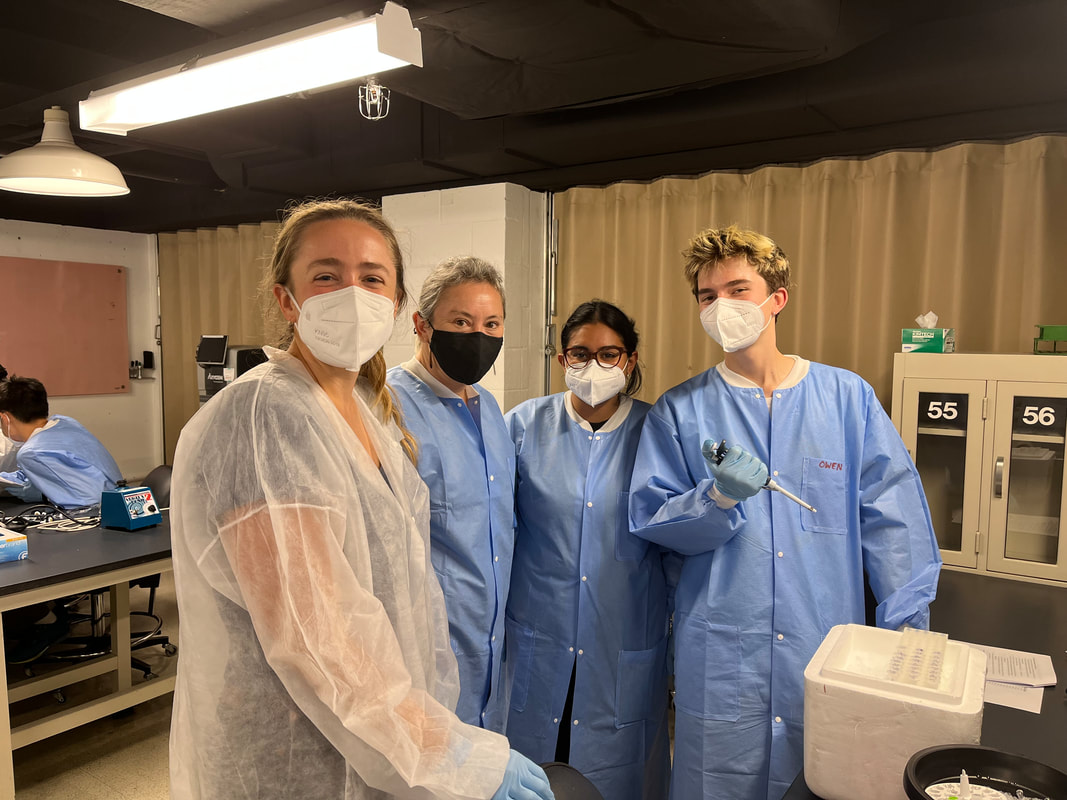
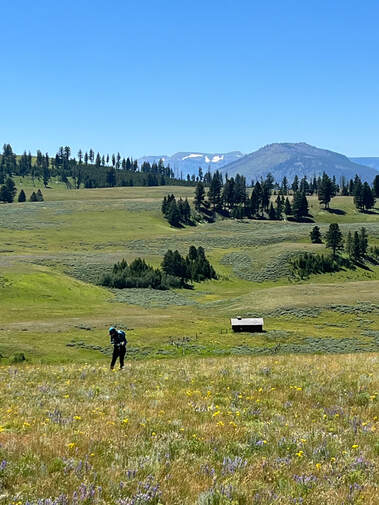
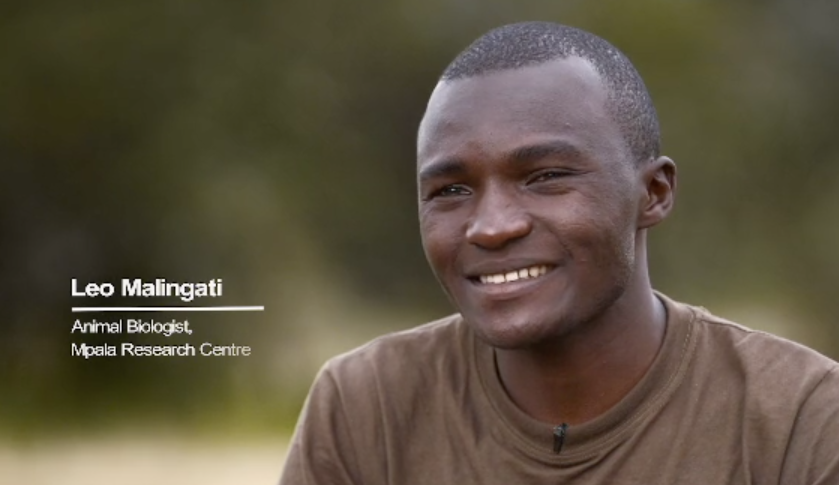
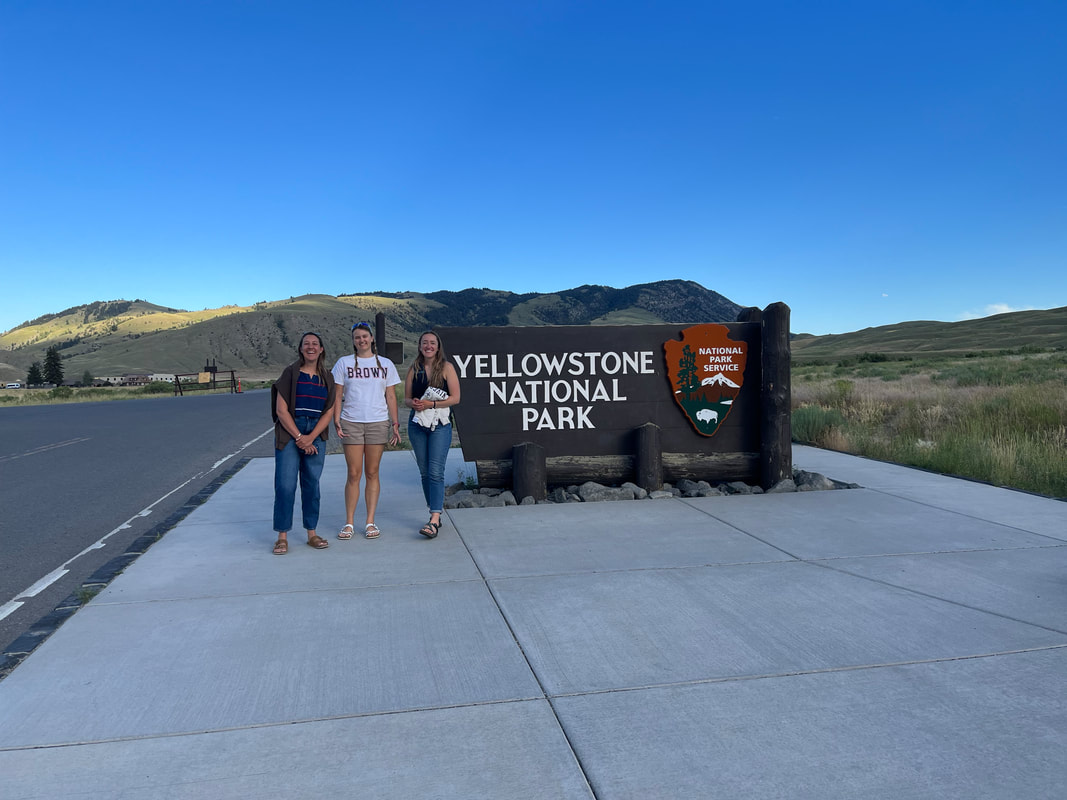
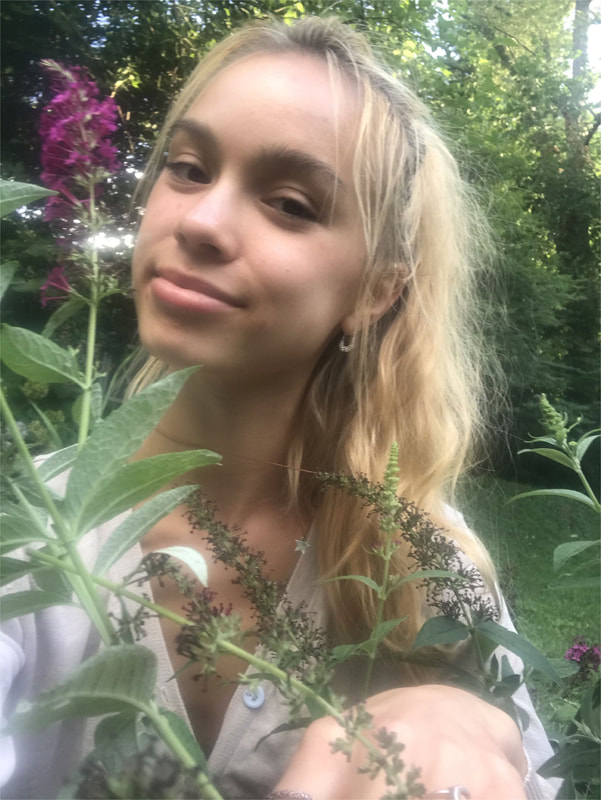
 RSS Feed
RSS Feed
